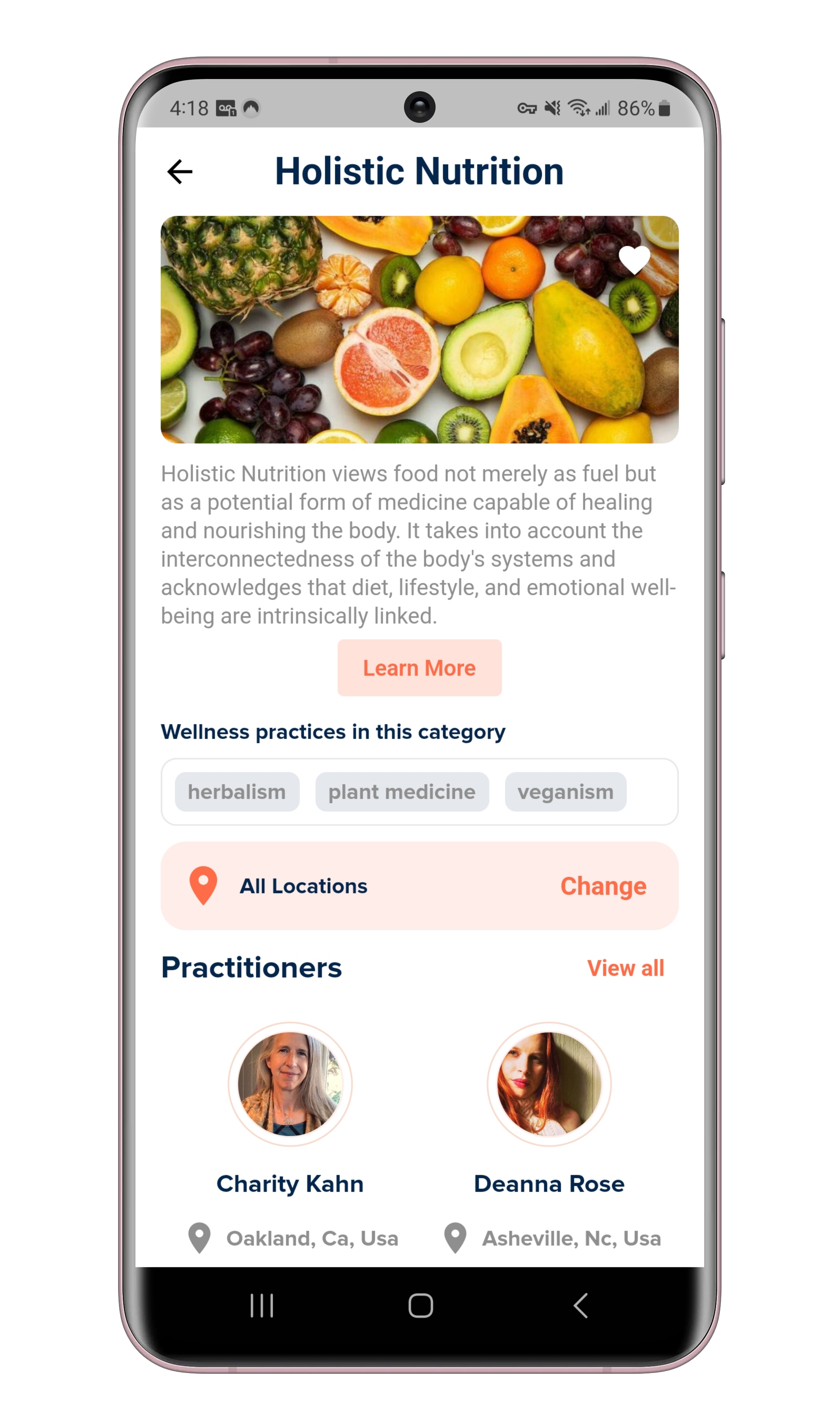TRADITIONAL CHINESE MEDICINE (TCM)
Traditional Chinese Medicine (TCM) is a holistic healing system that encompasses various practices such as acupuncture, herbal medicine, Qi Gong, and diet therapy. TCM focuses on the harmonious balance of the body, mind, and spirit and seeks to understand and treat the underlying causes of imbalance and disease.
Choosing to explore the healing potential of TCM is a significant step towards heightened well-being in your body, mind, and spirit. Make your journey smoother and more enjoyable with Healers & Teachers app
Healers & Teachers connects you with TCM practitioners in just a few taps
What is (TCM) Traditional Chinese Medicine?
Traditional Chinese Medicine (TCM) is a holistic healing system that dates back more than 2,500 years. It encompasses various practices such as acupuncture, herbal medicine, Qi Gong, and diet therapy. TCM focuses on the harmonious balance of the body, mind, and spirit and seeks to understand and treat the underlying causes of imbalance and disease.
History of TCM
TCM's roots can be traced back to ancient Chinese philosophy and cosmology. It has evolved over time, integrating different aspects of Chinese culture, religion, and philosophy. The foundational texts of TCM include the Huangdi Neijing and the Shang Han Lun, which laid down the principles of energy balance, herbal medicine, and more.
Types of Practices
Acupuncture: Utilizes fine needles to stimulate specific points on the body to balance Qi (energy) flow.
Herbal Medicine: Uses natural plants and minerals to create personalized formulas for treating various ailments.
Qi Gong and Tai Chi: Movement-based practices that cultivate energy, enhance flow, and promote overall wellness.
Diet Therapy: A system of eating based on individual constitution and imbalances.
How does TCM relate to other integrative therapies?
Traditional Chinese Medicine (TCM) is often grouped under the umbrella of integrative or complementary therapies, especially in Western contexts. Integrative therapies encompass various healing traditions, practices, and methods that are used alongside or in combination with conventional medicine. Here's how TCM relates to other integrative therapies:
Holistic Approach:
Like many integrative therapies, TCM views the individual as an integrated whole of body, mind, and spirit. The emphasis is on understanding the underlying root causes of imbalances or illness rather than merely treating symptoms.
Preventative Care:
Both TCM and integrative therapies prioritize prevention. The idea is to maintain health and balance, preventing the onset of disease rather than just treating it when it arises.
Personalized Treatment:
TCM, like other integrative therapies, focuses on individualized treatment plans based on the unique constitution and imbalances of the patient. The same symptom might be treated differently in two individuals based on their overall health and constitution.
Natural Remedies:
Many integrative therapies, including TCM, make use of natural resources like herbs, plants, and minerals for treatment. This natural focus contrasts with the synthetic medications often found in Western medicine.
Energy and Balance:
Many integrative therapies, from Reiki to certain types of yoga, revolve around the concept of energy or life force. In TCM, this is referred to as "Qi" (pronounced "chi"). Restoring and balancing this energy is a core principle in both TCM and many integrative therapies.
Complementary to Conventional Medicine:
TCM can be, and often is, used alongside Western medical practices. Similarly, other integrative therapies are also used to complement conventional treatments, enhancing their effects or mitigating side effects.
Shared Modalities:
There are overlaps in the modalities used in TCM and other integrative therapies. For instance, acupuncture is a TCM practice but can also be considered part of the broader world of integrative therapies.
Evidence-Based and Empirical:
While TCM has its foundation in millennia of empirical practice and traditional wisdom, there's a growing body of scientific research validating its methods. Similarly, many integrative therapies are now being studied and validated in the context of modern science.
Education and Advocacy:
Both TCM and integrative therapies emphasize patient education. The idea is to empower patients to take charge of their own health and wellness, fostering a partnership between the healer and the individual.
Mind-Body Connection:
Both TCM and many integrative therapies recognize the interconnectedness of the mind and body. Practices like meditation, mindfulness, and Qi Gong (from TCM) all nurture this connection for holistic health.
Who Might Want to Try Traditional Chinese Medicine (TCM)?
Those Seeking Holistic Approaches: Individuals who prefer a holistic approach to health, emphasizing the integration of body, mind, and spirit, might find TCM appealing.
People with Chronic Conditions: Those with conditions that haven't responded well to conventional treatments, such as chronic pain, migraines, digestive issues, or fertility concerns, might consider TCM for relief.
Individuals Looking for Preventative Care: TCM emphasizes prevention. Anyone interested in maintaining their health and preventing potential illnesses may benefit from TCM.
Those Wanting Personalized Care: TCM practitioners focus on individualized treatment based on each person's unique constitution and imbalances.
Patients Seeking Complementary Treatments: Those who want to use TCM alongside conventional Western medicine, especially in managing side effects or enhancing recovery, might find TCM beneficial.
Individuals Interested in Natural Remedies: People who prefer using natural resources like herbs and minerals over synthetic medications might lean toward TCM.
Those with Stress, Anxiety, or Emotional Concerns: Given its holistic approach, TCM can be especially helpful for addressing emotional and mental well-being alongside physical health.
Potential Risks of TCM
While TCM has been practiced for thousands of years and can offer numerous benefits, there are potential risks that one should be aware of:
Interactions with Medications: Some Chinese herbs can interact with conventional medications, which might alter the drug's effectiveness or cause adverse reactions.
Quality of Herbal Products: Not all herbal products are created equal. There's a risk of contamination or misidentification, leading to potential side effects.
Improper Acupuncture: If not performed correctly, acupuncture can cause complications, including infections, bruising, or injury.
Misdiagnosis: While TCM practitioners are skilled in their diagnostics, there's always a risk of misinterpretation, which might lead to ineffective treatment.
Pregnancy: Certain TCM treatments, especially certain herbs, might not be suitable during pregnancy and can pose risks to the fetus.
Allergic Reactions: Just as with any other treatment, individuals might be allergic to certain herbs or components used in TCM.
Delay in Conventional Treatment: For serious conditions, it's essential not to delay necessary conventional treatments in favor of TCM or any alternative medicine.
Qualifications, credentials or experiences of a TCM Practitioner
When considering Traditional Chinese Medicine (TCM) treatments, it's crucial to ensure that the practitioner you choose has the proper qualifications, credentials, and experience to ensure safety and efficacy. Here's a breakdown of what to look for:
1. Educational Background:
Degree in TCM: Many countries have accredited TCM colleges where practitioners undergo years of study. Typically, these programs last 3-5 years and cover both theory and clinical practice.
Specializations: Some practitioners might have additional training in specific areas, such as acupuncture, herbal medicine, or Tui Na (massage). Look for these specializations if they're relevant to your needs.
2. Licensing and Certification:
National or State Licensing: Depending on the country or region, TCM practitioners may need to be licensed. Ensure the practitioner has a valid license from a recognized authority.
Certification: Certification from a recognized TCM organization can be an additional sign of a practitioner's competency.
Continuing Education: Medicine, even traditional forms, evolves over time. A practitioner who engages in regular continuing education is likely keeping up-to-date with the latest practices and research.
3. Membership in Professional Organizations:
Joining professional TCM organizations can indicate a practitioner's commitment to the field. These organizations might include the American Association of Acupuncture and Oriental Medicine (AAAOM) in the U.S. or similar associations in other countries.
4. Experience:
Years of Practice: As with any medical profession, experience can play a significant role in the practitioner's competency.
Clinical Internships: Many TCM educational programs include internships. A practitioner with extensive clinical internship experience might have had more hands-on training.
5. Reputation and Reviews:
Patient Reviews: While subjective, reviews from previous patients can provide insights into the practitioner's professionalism, effectiveness, and approach.
Referrals: If you have friends, family, or medical professionals familiar with TCM, ask them for recommendations.
6. Personal Fit:
Communication: It's vital to feel comfortable with your practitioner and to ensure they communicate clearly about diagnosis, treatment, and any associated risks.
Transparency: A reputable practitioner will be transparent about the potential benefits, costs, and any risks associated with treatments.
7. Ethical Practices:
Hygiene and Cleanliness: Especially for treatments like acupuncture, ensuring the practitioner follows strict hygiene practices is crucial.
Honesty about Limitations: TCM can't address every health issue. An ethical practitioner will be honest about what TCM can and can't do and when it's time to consult or refer to another medical professional.
8. Knowledge about Herbs:
If you're considering herbal treatments, ensure the practitioner has extensive knowledge in this area and sources high-quality, uncontaminated herbs.
Healing and Growth begins with you
Remember, the journey towards holistic health and wellness is a personal one, and it can be comforting and reassuring to know you're not alone. With the Healers & Teachers app, you'll have a wealth of resources and a supportive community right at your fingertips, ready to assist you every step of the way.
The Healers & Teachers app offers:
Skilled Facilitators: Connect with experts proficient in diverse TCM styles and methods. Receive tailored advice and modified techniques to enhance balance, emotional harmony, and well-being.
Rich Array of Techniques and Protocols: Delve into a vast range of TCM practices, from acupuncture to herbal therapies and Qi Gong. Explore protocols for stress management, emotional restoration, and spiritual growth. Access sessions adjusted for different proficiency levels and distinct goals.
Vibrant TCM Community: Engage with an active community of TCM aficionados on a mutual path to holistic health. Interact, exchange stories, seek guidance, and draw from the combined knowledge and encouragement of fellow enthusiasts.






